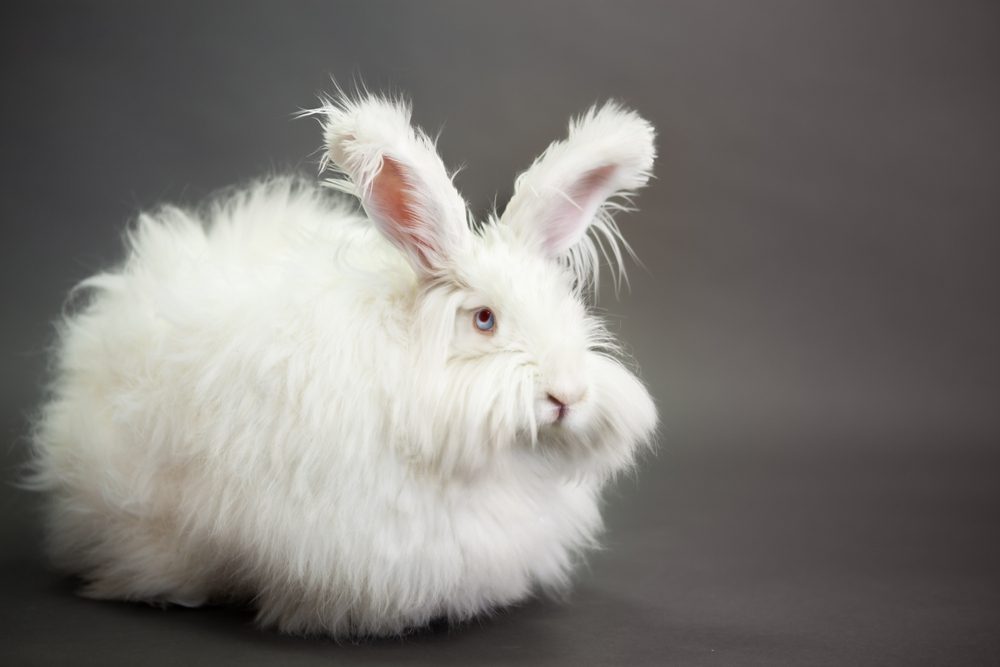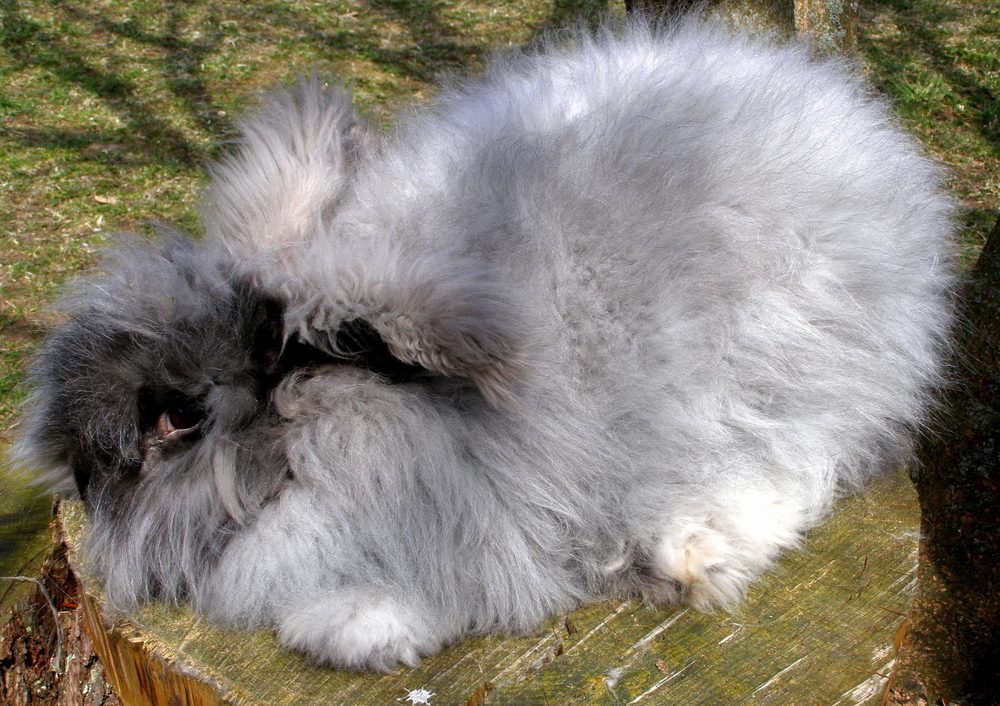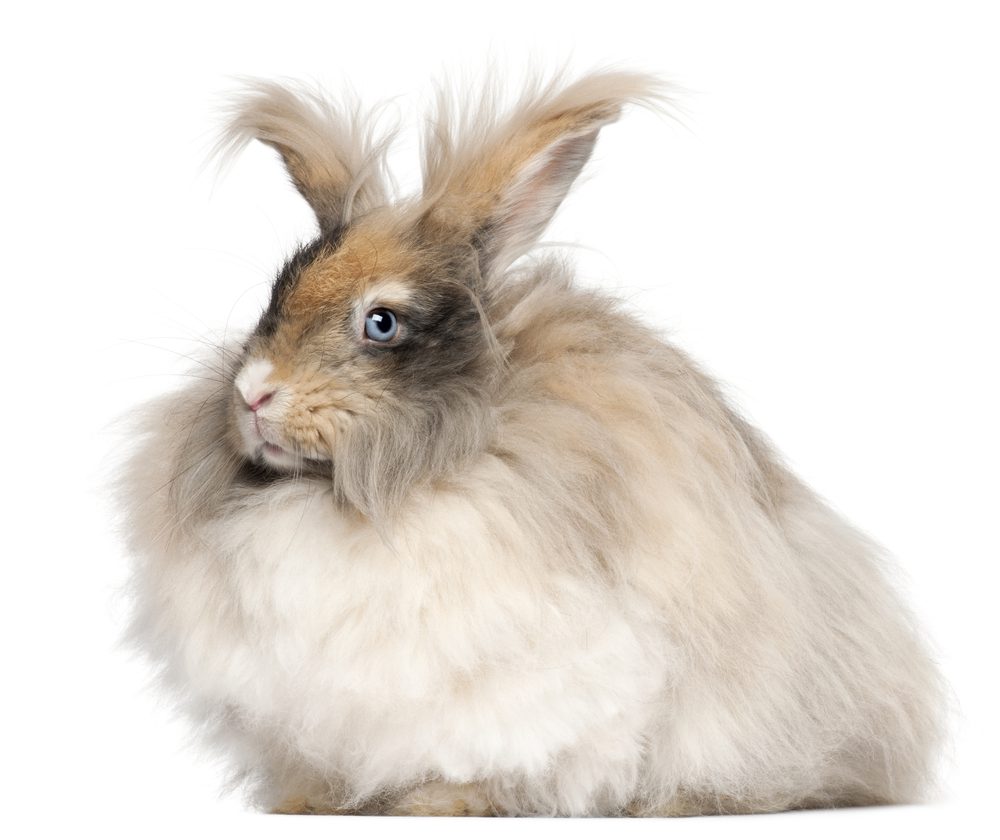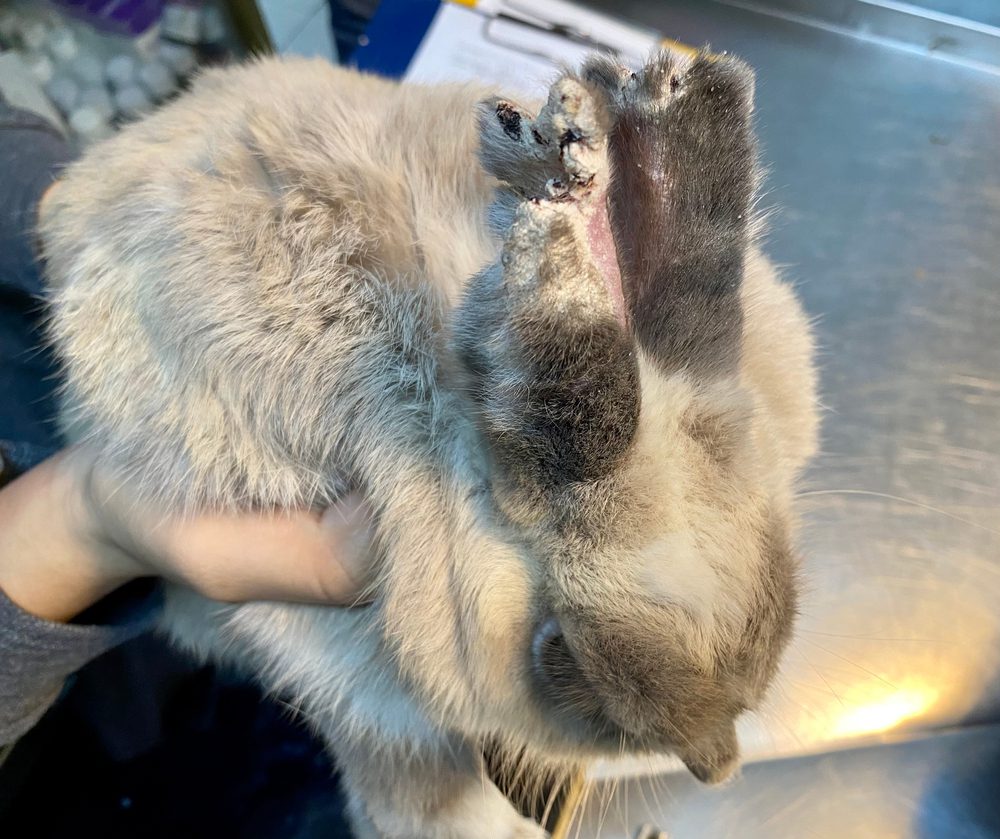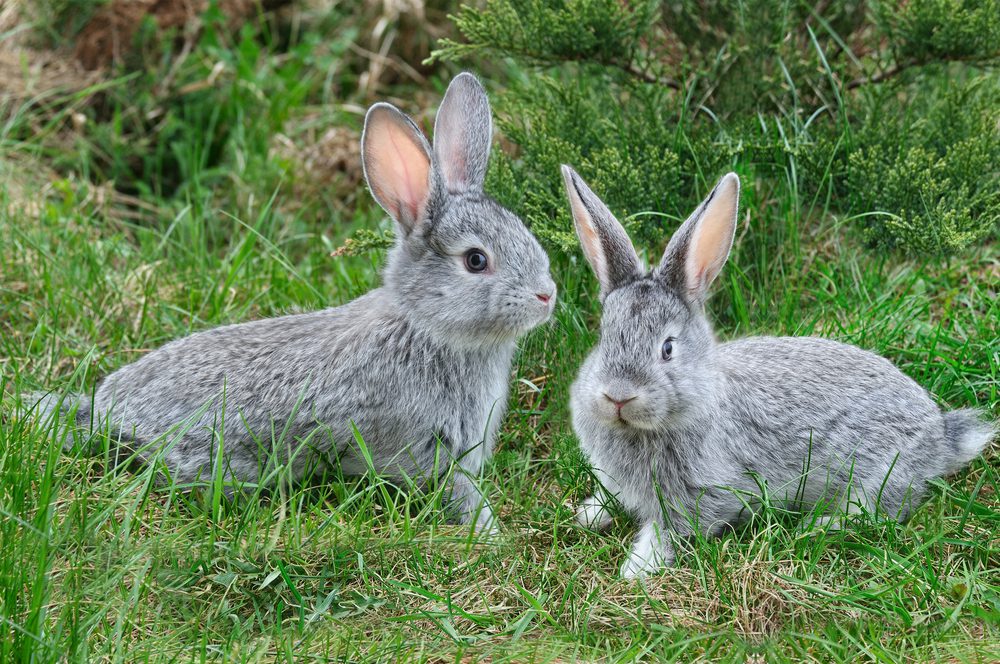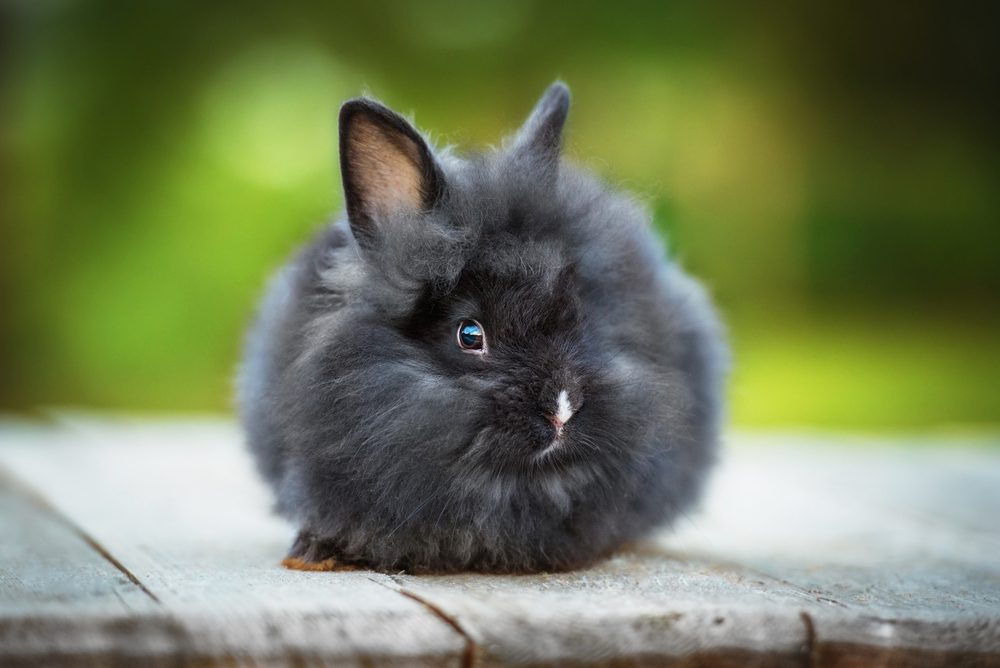The Lifespan Of Angora Rabbits: Factors that Influence The Most
The lifespan of an Angora rabbit is one of the critical factors that make them such appealing companions. While it varies depending on factors like care, diet, and genetics,
Angora Rabbits can live up to 7-12 years on average.
Understanding the lifespan of Angora rabbits is crucial for pet owners and enthusiasts alike. It helps guide their care routines, ensuring these gentle creatures lead healthy and fulfilling lives. From grooming and nutrition to medical check-ups and exercise, every aspect plays a crucial role in enhancing the longevity of these beloved pets.
A combination of genetic and environmental factors influences the lifespan of an Angora rabbit. Some rabbits may be more prone to specific health issues or have weaker immune systems, affecting their longevity. Additionally, the care and nutrition provided by their owners play a significant role in determining how long they can live.
Factors that Influence the Lifespan of Angora Rabbits
Several factors, including genetics, diet, exercise, living conditions, and overall health care, can influence the lifespan of an Angora rabbit. Understanding these factors can help ensure your Angora rabbit lives long and healthy.
1. Genetics
The genetic makeup of an Angora rabbit plays a crucial role in its lifespan. Some rabbits may inherit certain health conditions or have a weaker immune system, affecting their overall well-being and longevity. It is essential to obtain your rabbit from a reputable breeder who prioritizes their rabbits’ health and genetic diversity.
2. Diet
A balanced and nutritious diet is vital for an Angora rabbit’s overall health and lifespan. They require a high-fiber diet consisting of quality hay, fresh vegetables, and limited pellets. Avoid feeding them foods that are high in sugar or fat, as these can lead to obesity and other health problems.
3. Exercise
Regular exercise is essential for Angora rabbits to maintain a healthy weight and engage in natural behaviors. Ensure they have ample space to hop and explore and toys and tunnels to keep them mentally stimulated. Regular exercise helps prevent obesity, promotes good circulation, and strengthens muscles and bones.
4. Living Conditions
The living conditions of an Angora rabbit can significantly impact its lifespan. Provide them with a clean and spacious enclosure that allows for proper ventilation. Regularly clean their living area to prevent the build-up of bacteria and parasites. Additionally, ensure they have a comfortable resting area with soft bedding material.
5. Overall Health Care
Regular veterinary check-ups are crucial for monitoring the health of your Angora rabbit. Vaccinations, parasite control, and dental care are essential to their well-being. Regular grooming, including nail trims and checking for any signs of illness or injury, is also essential.
By understanding and addressing these factors, you can significantly improve the lifespan of your Angora rabbit and ensure they live a happy and healthy life.
Common Health Issues in Angora Rabbits
While Angora rabbits are generally healthy animals, they can be prone to specific health issues. Awareness of these conditions can help you identify and address them promptly, ensuring your rabbit receives the necessary care and treatment.
1. Wool Block
One common health issue in Angora rabbits is wool block, where the ingestion of excessive fur leads to a blockage in the digestive system. This can cause discomfort, loss of appetite, and even death if left untreated. Regular grooming and providing plenty of hay can help prevent wool block. If you notice any signs of digestive issues or a decreased appetite, consult a veterinarian immediately.
2. Dental Issues
Dental problems are another concern for Angora rabbits. Their teeth continuously grow throughout their lives, and if not correctly worn down, they can develop overgrown teeth or dental malocclusion. This can lead to difficulty eating, weight loss, and oral infections. Regular veterinary check-ups and providing appropriate chew toys can help prevent dental issues.
3. Respiratory Infections
Angora rabbits are also susceptible to respiratory infections, mainly if housed in damp or poorly ventilated environments. Signs of respiratory infections include sneezing, coughing, nasal discharge, and difficulty breathing. Ensuring proper ventilation and keeping their living area clean and dry can help prevent respiratory problems.
Monitoring your Angora rabbit closely for any signs of illness or discomfort is essential. Prompt veterinary care and a proactive approach to health issues can help prolong their lifespan and ensure their well-being.
Proper Care and Nutrition for Angora Rabbits
Providing proper care and nutrition is crucial for an Angora rabbit’s overall health and lifespan. Here are some essential guidelines to follow:
1. Diet
Angora rabbits require a fiber-rich diet to maintain a healthy digestive system. Provide them unlimited access to high-quality hay, such as Timothy or orchard grass. Fresh vegetables, such as dark leafy greens, can be offered in moderation. Pellets should be limited and chosen carefully to avoid those with excessive sugar or fat content.
2. Grooming
Regular grooming is essential to prevent wool block and maintain the health of their coat. Angora rabbits have long fur that requires frequent brushing to remove loose fur and prevent matting. Use a soft brush or comb designed for rabbits to groom them gently. This keeps their coat in good condition and strengthens your bond with your rabbit.
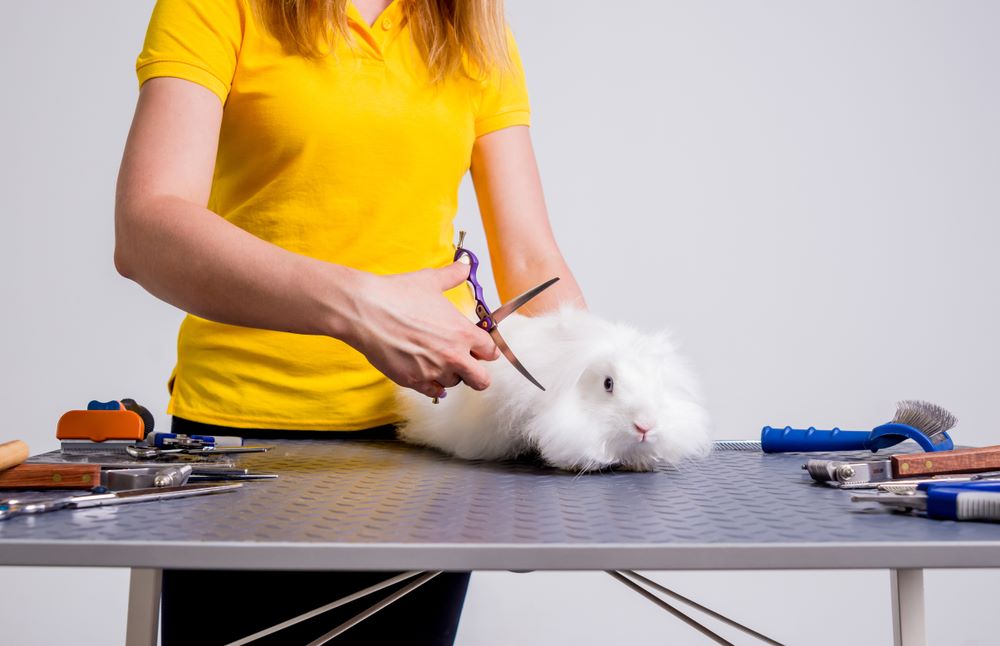
3. Exercise
Angora rabbits need regular exercise to stay physically and mentally healthy. Provide them with a spacious enclosure or a safe area to hop and explore. Interactive toys and tunnels can keep them engaged and entertained. Supervised time outside in a secure, predator-free environment can also provide them with additional mental and physical stimulation.
4. Veterinary Care
Regular veterinary check-ups are essential for monitoring the health of your Angora rabbit. Vaccinations, parasite control, and dental exams should be part of their routine healthcare. Consult a veterinarian experienced in rabbit care for any concerns or issues.
Following these care guidelines ensures that your Angora rabbit lives a long and fulfilling life.
Grooming and Maintaining the Coat of Angora Rabbits
One of the most distinctive features of Angora rabbits is their long and luscious fur. Proper grooming and coat maintenance are essential to keep their fur healthy and prevent matting. Here are some tips for grooming and maintaining the coat of your Angora rabbit:
1. Regular Brushing
Angora rabbits require frequent brushing to remove loose fur and prevent matting. Use a soft brush or comb designed for rabbits and gently brush their fur. Start from the base of the fur and work your way towards the ends, being careful not to pull or tug. This will help prevent discomfort and keep their coat in good condition.
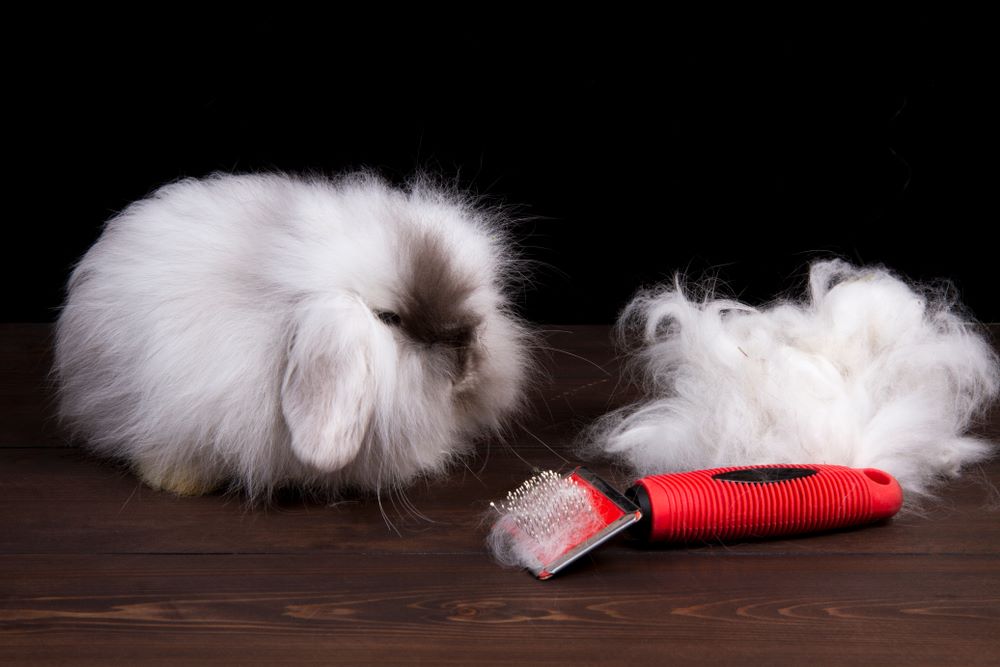
2. Trimming
Besides brushing, regular fur trimming may be necessary to prevent excessive matting and maintain a manageable length. Use sharp, rabbit-safe scissors to carefully trim areas prone to tangling, such as around the tail, belly, and ears. Be cautious not to cut their skin or fur too short.
3. Bathing
While Angora rabbits generally do not require frequent baths, occasional bathing may be necessary if their fur becomes soiled or matted. Use a gentle rabbit-specific shampoo and warm water to bathe them. Be sure to thoroughly dry their fur afterward to prevent them from getting cold or developing skin issues.
4. Preventing Wool Block
The wool block is a common concern in Angora rabbits, where ingested fur forms a blockage in their digestive system. To prevent wool block, provide them with plenty of hay, which helps promote healthy digestion and prevents excessive fur ingestion. Regular grooming and trimming can also minimize the amount of fur they ingest.
5. Professional Grooming
If you are inexperienced or not confident in grooming your Angora rabbit, consider seeking professional grooming services. Professional groomers experienced in handling rabbits can provide the necessary grooming and coat maintenance to keep your rabbit’s fur in optimal condition.
Grooming is essential for maintaining your Angora rabbit’s appearance, health, and well-being. Regular grooming sessions also provide an opportunity for bonding and strengthening your relationship with your furry friend.
Tips for Keeping Angora Rabbits Healthy and Happy
Keeping your Angora rabbit healthy and happy requires more than just proper nutrition and grooming. Here are some additional tips to ensure your rabbit thrives:
- Provide Enrichment: Angora rabbits are intelligent and curious animals that require mental stimulation. Provide them with toys, tunnels, and puzzles to keep them engaged and prevent boredom. Rotate their toys regularly to maintain their interest.
- Social Interaction: Angora rabbits are social animals that benefit from regular human interaction. Spend time with your rabbit, petting and cuddling them. This helps strengthen your bond and provides them with the social enrichment they need.
- Safe Environment: Create a safe and rabbit-proofed environment for your Angora rabbit. Remove any hazardous items or substances that could harm them, such as toxic plants, electrical cords, or small objects they could swallow.
- Litter Training: Angora rabbits can be litter trained, which makes cleaning their living area easier and provides them with a designated bathroom space. Use a box filled with rabbit-safe litter and place it in a corner of their enclosure. Reward them with treats and praise when they use the litter box correctly.
- Regular Playtime: Allow your Angora rabbit time outside their enclosure for supervised playtime. This allows them to explore, hop, and exercise in a larger space. Ensure the area is secure and free from potential hazards.
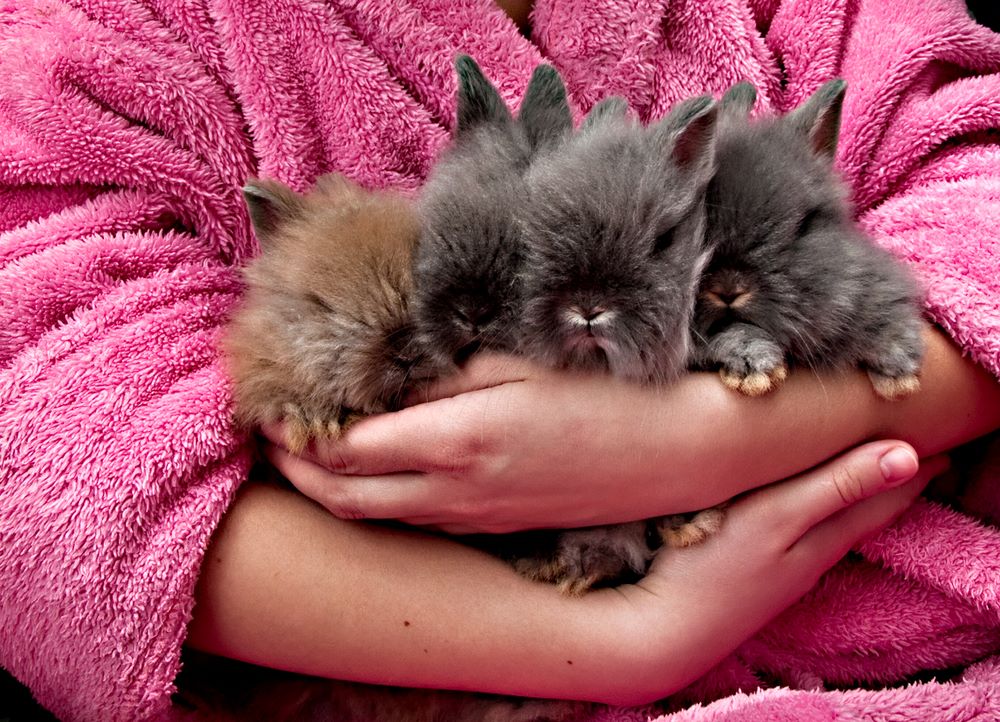
Breeding and Reproduction in Angora Rabbits
Breeding Angora rabbits is a complex process that requires careful consideration and knowledge. It is important to note that breeding should only be done by experienced and responsible breeders who prioritize the health and welfare of the rabbits.
Angora rabbits reach sexual maturity at around 4-6 months, but breeding should be delayed until they are at least 8 months old to ensure their physical and mental development. Breeding too early can put undue stress on the rabbit’s body and potentially lead to complications.
When considering breeding, selecting healthy rabbits with desirable traits and genetic diversity is essential. Breeding closely related rabbits can increase the risk of genetic disorders and health issues in the offspring.
The breeding process involves introducing a male and female rabbit in a controlled and supervised environment. After successful mating, the female rabbit will undergo a gestation period of approximately 31-33 days. It is crucial to provide the pregnant rabbit with a comfortable and safe nesting area and a nutritious diet to support her and her offspring’s well-being.
Breeding Angora rabbits requires extensive knowledge and resources to ensure the health and welfare of the rabbits involved. It is recommended to consult with an experienced breeder or veterinarian before considering breeding your Angora rabbits.
Final Thoughts
Raising Angora rabbits can be a rewarding and fulfilling experience. Their unique appearance, gentle temperament, and long lifespan make them ideal companions for those who provide the necessary care and attention.
So whether you are a proud Angora rabbit parent or captivated by their charm, embrace the joys and challenges of raising these fluffy wonders. With love, care, and a commitment to their well-being, you can enjoy an incredible journey with your Angora rabbit from fuzzy fluffball to graceful elder.

